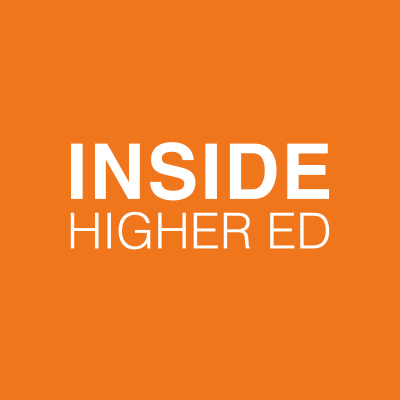
Inside Higher Ed
September 12, 2022 Admissions, Enrollment Management Trends
U.S. News rankings will no longer punish schools where most student don’t submit SAT or ACT scores. In their new calculation, they increased the weight of high school class standing and average graduation rate for those schools that report SAT/ACT scores for less than 50 percent of new entrants. For test-blind schools, rankings value is equal to the lowest test score in their rankings.

Higher Ed. Dive
September 08, 2022 Enrollment Management Trends, Student Success
Researchers found that 5.6% of undergraduate and graduate students surveyed identified as caregivers. 3.2% cared for someone who was chronically ill or aging, and 2.9% cared for a minor. These students were disproportionately women, graduate students, financial aid recipients, and enrolled part time. Such students had lower average GPAs and a higher likelihood to report depression and anxiety symptoms. It is recommended institutions proactively identify such students and design policies to minimize emotional and academic risk factors.

Inside Higher Ed
September 06, 2022 Enrollment Management Trends, Student Success
As institutions navigate employees’ desires for flexibility in work location and hours, there is agreement that student needs should be central to decision-making. College and university officials may not realize, however, that most students don’t expect or feel they need in-person, non-faculty staff on campus. Students indicated via a recent survey, however, that certain departments should always have at least some staff physically working on campus, such as financial aid and counseling centers.

The Chronicle of Higher Education
August 04, 2022 Admissions, Enrollment Management Trends
In the weeks leading up to the start of classes, a portion of students who commit to attend a given university will “melt” away. Lost students leave gaps in campus budgets and vacant seats in classrooms. While efforts from enrollment managers have helped combat some melt, additional strategies may need to be explored to keep students engaged with the university.

Higher Ed. Dive
August 12, 2022 Admissions, Enrollment Management Trends
The Common Application will expand a pilot program that offers students who create Common App profiles and provide their academic histories automatic admission to select institutions. Representatives from the Common App said students were more likely to apply to institutions if they received automatic admission.

Higher Ed. Dive
August 04, 2022 Enrollment Management Trends, Student Success
Colleges with vaccination requirements reduced the number of positive cases and deaths in surrounding areas. The mandates reduced the number of deaths by 5% at four-year residential colleges, and also reduced new COVID-19 cases by 339 per 100,000 county residents.

Higher Ed. Dive
August 02, 2022 Enrollment Management Trends, Value and Affordability
New Jersey regulators can revoke higher education institutions’ authority to grant degrees and credentials if they don’t meet quality standards. A new law signed last week requires state agencies to create metrics for gauging the success of career-centered programs, based on the ratio of tuition rates versus graduates’ anticipated earnings. This benchmark applies to all institution types.

Higher Ed. Dive
August 02, 2022 Enrollment Management Trends, Student Success
According to recent research from the National Student Clearinghouse, only 51% of students earned 24 or more credits in their first year of college, and only 28% of first-year students earning 30 or more credit hours. While the rate of credits earned varied based on institution type, degree sought, college readiness, enrollment intensity, and race and ethnicity, most students are not on track to graduate in four or five years.

Higher Ed. Dive
July 27, 2022 Admissions, Enrollment Management Trends
More than 1,700 colleges and universities are not requiring test scores for admissions, while a few test-optional institutions reverted to their previous policies. The significant number of institutions maintaining test-optional policies suggests the assessments will have a permanently diminished role in admissions.

Inside Higher Ed
July 12, 2022 Enrollment Management Trends, Student Success
According a new report, differences in advising at higher education institutions affected racial and ethnic disparities in graduation rates. Those with narrower disparities had lower advising caseloads, greater use of advising technologies, and more access to student data. These differences carry valuable lessons for institutions trying to close equity gaps.